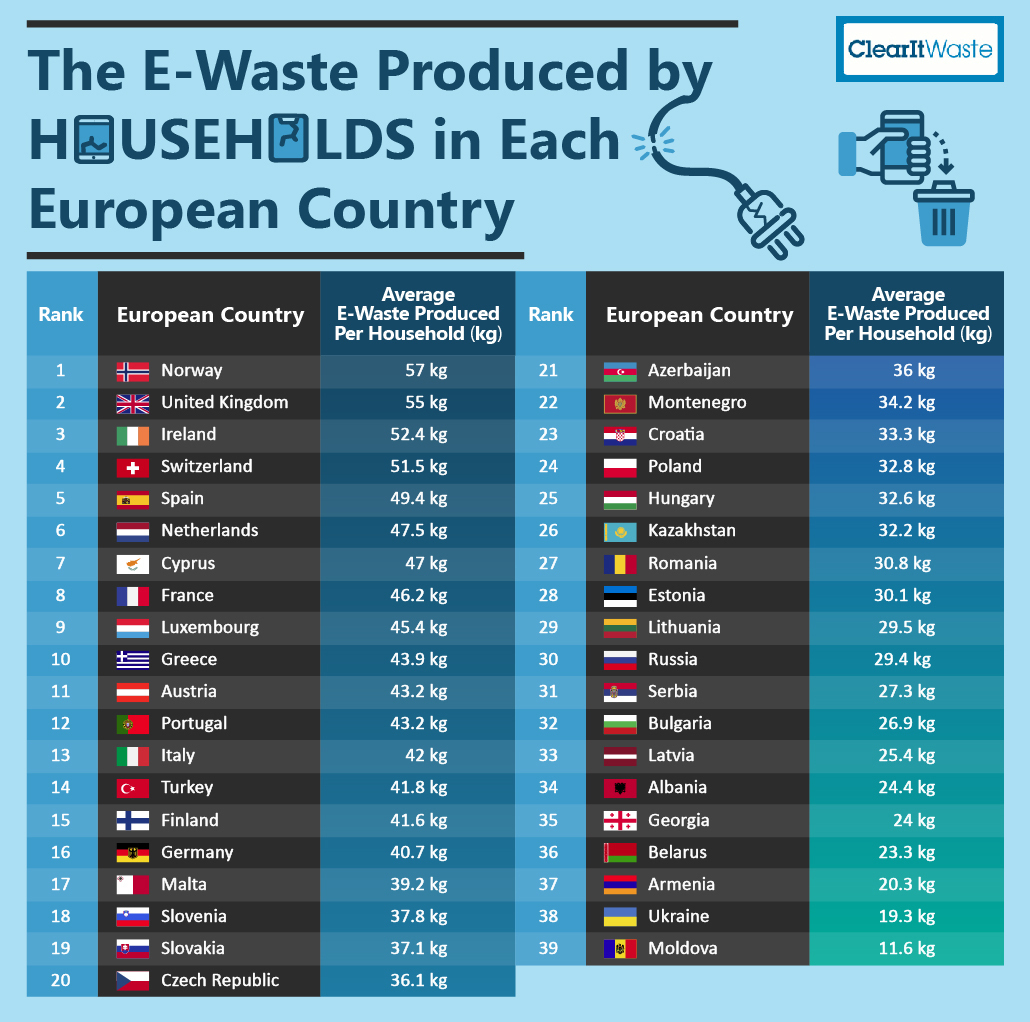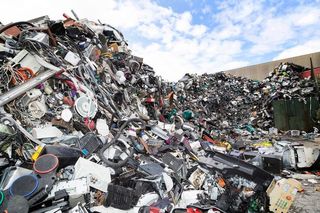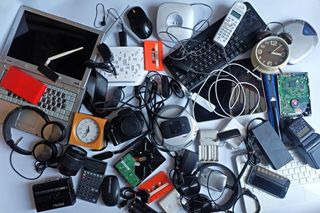Germany’s households are guilty of producing THIS much e-waste
11.12.2020Christmas is right around the corner and Germans across the country have already begun shopping for their loved ones. One of the most popular Christmas ‘gifts’ will be electronic products, but as people receive their new smartphones, TVs and computers, ‘old’ models will undoubtedly contribute towards the growing problem that is e-waste (electronic waste).
 © ClearItWaste
In 2019 alone, there was 53.6 million tonnes (Mt) of electronic waste globally according to statistics from the United Nations (UN). This is equivalent to the weight of 350 cruise ships the size of the Queen Mary two!
© ClearItWaste
In 2019 alone, there was 53.6 million tonnes (Mt) of electronic waste globally according to statistics from the United Nations (UN). This is equivalent to the weight of 350 cruise ships the size of the Queen Mary two!
Interested in electronic waste, Clearitwaste.co.uk utilised e-waste data from the Global E-Waste Statistics Partnership and household composition data from the United Nations to calculate, out of 39 European countries, who produces the most e-waste on average per household each year.
Which European country produces the most e-waste per household?
 © Morton B / Shutterstock
Clearitwaste.co.uk found that Norwegians are the biggest culprits in Europe when it comes to e-waste, as the average amount generated per household is 57 kg annually. That is the same weight as six small business printers.
© Morton B / Shutterstock
Clearitwaste.co.uk found that Norwegians are the biggest culprits in Europe when it comes to e-waste, as the average amount generated per household is 57 kg annually. That is the same weight as six small business printers.
The UK is in second position – British households are guilty of producing 55 kg of e-waste per year. Considering that there are 27.8 million households in the UK, the collective e-waste in the country could potentially be 1 529 000 000 kg – the equivalent weight of 1 174 347 city cars (refering to cars like the Toyota Aygo, Volkswagen Up, Hyundai i10 and Kia Picanto)!
Irish households produce an average of 52.4 kg of e-waste every year and therefore are in third spot. Irish household e-waste is comparable to the weight of five adult bicycles.
Other European countries whose households produce more than 45 kg of e-waste include Spain (49.4 kg), Netherlands (47.5 kg), Cyprus (47 kg), France (46.2 kg) and Luxembourg (45.4 kg), respectively ranking fifth, sixth, seventh, eighth and ninth.
 © Damrong Rattanapong / Shutterstock
In sixteenth place is Germany – Germans generate 40.7 kg of e-waste per household. The e-waste per household in Germany is the equivalent weight of 15 modern computer monitors.
© Damrong Rattanapong / Shutterstock
In sixteenth place is Germany – Germans generate 40.7 kg of e-waste per household. The e-waste per household in Germany is the equivalent weight of 15 modern computer monitors.
With 41 506 000 households in Germany, the overall household e-waste in the country could equate to 1 689 294 200kg – approximately the same weight as 100 submarines (the submarine type used for comparison in this research is the ohio-class submarine).
On the other end in 39th position is Moldova. Moldovans hold the crown of generating the least e-waste in Europe at an average of 11.6 kg per household each year. The e-waste weight per household in Moldova is in proportion to the weight of nine empty 1.7 litre plastic kettles.
Germans views on e-waste
Considering that e-waste often contains chemicals (e.g. lead, mercury etc.) which can be very harmful to the environment, Clearitwaste.co.uk surveyed 1526 Germans to discover their views on a range of issues concerning e-waste. The survey results were as follows:
·19 % of Germans don’t know what ‘e-waste’ is; 81 % do
·From the 81 %, only 35 % truly understand the devastating problems associated with excessive e-waste
·79 % of Germans feel relevant governmental/environmental bodies need to better educate the public on what e-waste is and how it can adversely impact the environment
·Interestingly, just 43 % of Germans confidently and correctly know how to dispose of their old/unwanted electronic items
Additionally, Clearitwaste.co.uk consulted energy specialists SaveonEnergy.com/uk/ for their top tips on how YOU can reduce e-waste this Christmas:
1. Sell ‘old’ working electronics online
Many will undoubtedly get new electronic devices this Christmas. Instead of binning or letting the ‘old’ electronic devices be forgotten about in your cupboards until they no longer work properly, consider selling them online. There are a vast number of reputable online selling platforms and recycling websites which could pay you a handsome sum for the electronics that you don’t intend to use again.
2. Repurpose old electronics
Just because you have been gifted the newest version of an electronic for Christmas, your old device doesn’t have to become redundant. Think about how you can reuse it for some other purpose – for instance, why not use your old smartphone as a GPS, music player or universal remote control. Overtime, repurposing old electronics could save you a fortune and help reduce the harmful impact of e-waste on our planet!
3. Make eco-conscious decisions when gifting
Retailer offers and discounts in the run-up to Christmas can be very enticing but always ask yourself ‘does the person I want to gift this item to really need it’? This thought-process is especially important when considering electronic gift purchases because the ‘new’ model might not necessarily be better than the existing model. It may look and sound fancier, but if it doesn’t really improve the recipient’s experience by that much more, why buy it?
All figures in this research by Clearitwaste.co.uk which refer to the average annual e-waste produced by households in different European countries are estimates.
Data for the following European countries was not available: Andorra, Bosnia and Herzegovina, Denmark, Iceland, Lichtenstein, North Macedonia, San Marino and Sweden.

